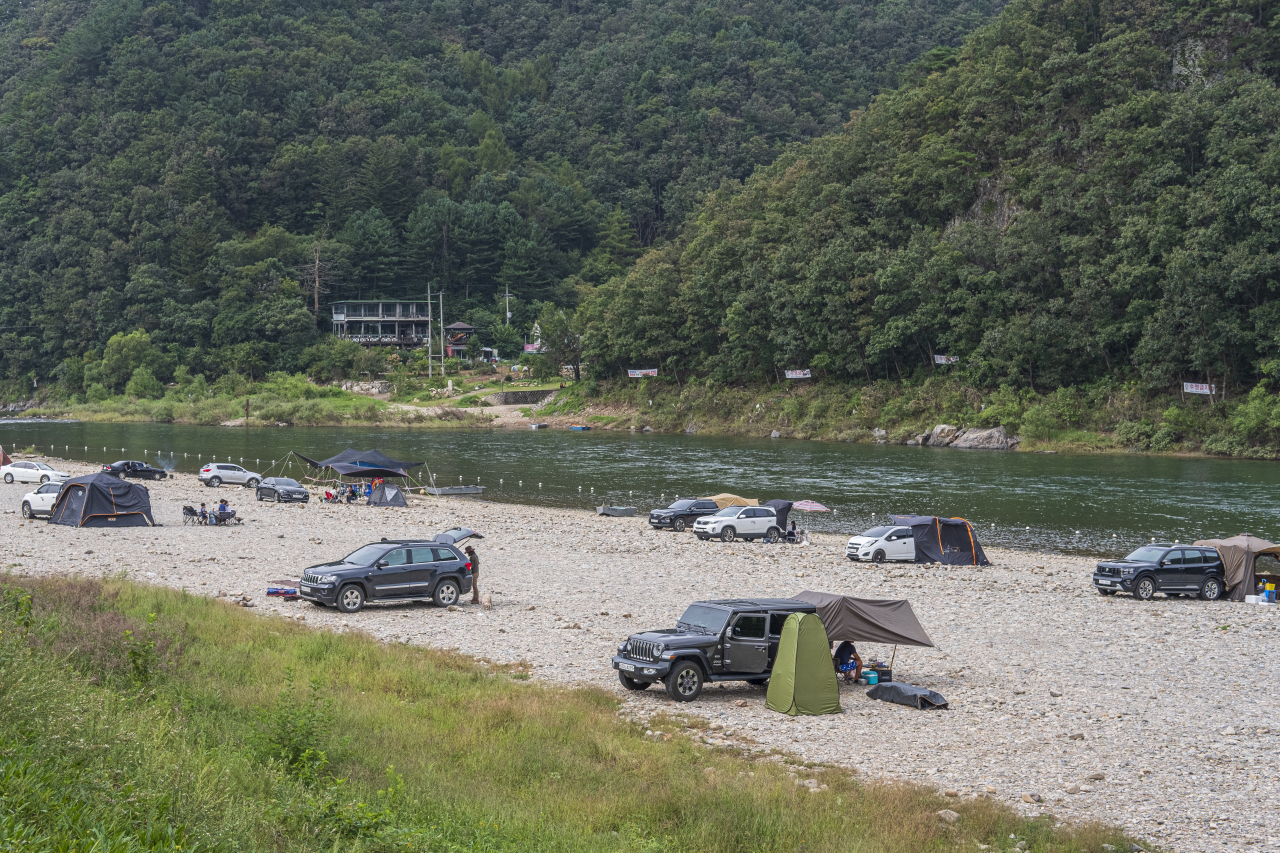KCTI expects domestic tourism to grow even after pandemic
By Im Eun-byelPublished : April 3, 2021 - 16:01

Though the arrival of vaccines has recently boosted hopes for international travel, the Korea Culture & Tourism Institute expects domestic tourism will continue to be strong in the post-pandemic era.
Last year, the number of international tourists across the world decreased by 74 percent from the year before, dropping to a point similar to that of the 1990s, according to the World Tourism Organization.
On Thursday, the KCTI shared a report written by its official, Choi Gyeong-eun, titled “How will the tourism trends change after the COVID-19?” based on domestic and international data.
According to the report, “hyper-personalization” will be a strong tourism trend in the future, as it is expected that tourists will prefer individualistic or small group trips rather than group tourism.
Also, COVID-19 has increased the demand for short-distance travel, and the trend is likely to continue as tourists prefer staycations, or traveling locally.
Nature-friendly tourism has come into the spotlight, too. As going contactless has become a major trend amid the COVID-19 pandemic, tourists are avoiding visiting enclosed spaces where a large number of people may gather. They prefer to seek health and wellness in nature, where in-person contact can be minimized.
According to data from the nation’s largest navigation service T Map last year, the search rate for drive-in cinemas went up by 144 percent, paragliding spots by 92 percent, scenic drives by 55 percent, camping sites by 54 percent and breakwaters by 52 percent.
On the contrary, search rates for casinos decreased by 62 percent, amusement parks by 59 percent, horse racetracks by 58 percent, science museums by 56 percent, royal palaces by 56 percent, cinemas by 54 percent, hot springs by 49 percent and performing art venues by 44 percent.
The institute deems that the demand for contactless technology for safety in the virus-hit era has been increasing heavily. Application of contactless technology for accommodations, payment and information can guarantee the safety of tourists by minimizing in-person contacts.
Also, the KCTI expects the domestic tourism sector, which has been growing in light of the COVID-19 pandemic as the virus crisis has been strictly restricting international traveling, will continue to grow even after the COVID-19 pandemic has resolved.
“Though the virus crisis has inflicted much damage to the tourism sector, it has been positively influencing the domestic tourism scene,” the report said.
“Though international travel may resume, an increase in demand for domestic tourism will continue.”
By Im Eun-byel (silverstar@heraldcorp.com)
Last year, the number of international tourists across the world decreased by 74 percent from the year before, dropping to a point similar to that of the 1990s, according to the World Tourism Organization.
On Thursday, the KCTI shared a report written by its official, Choi Gyeong-eun, titled “How will the tourism trends change after the COVID-19?” based on domestic and international data.
According to the report, “hyper-personalization” will be a strong tourism trend in the future, as it is expected that tourists will prefer individualistic or small group trips rather than group tourism.
Also, COVID-19 has increased the demand for short-distance travel, and the trend is likely to continue as tourists prefer staycations, or traveling locally.
Nature-friendly tourism has come into the spotlight, too. As going contactless has become a major trend amid the COVID-19 pandemic, tourists are avoiding visiting enclosed spaces where a large number of people may gather. They prefer to seek health and wellness in nature, where in-person contact can be minimized.
According to data from the nation’s largest navigation service T Map last year, the search rate for drive-in cinemas went up by 144 percent, paragliding spots by 92 percent, scenic drives by 55 percent, camping sites by 54 percent and breakwaters by 52 percent.
On the contrary, search rates for casinos decreased by 62 percent, amusement parks by 59 percent, horse racetracks by 58 percent, science museums by 56 percent, royal palaces by 56 percent, cinemas by 54 percent, hot springs by 49 percent and performing art venues by 44 percent.
The institute deems that the demand for contactless technology for safety in the virus-hit era has been increasing heavily. Application of contactless technology for accommodations, payment and information can guarantee the safety of tourists by minimizing in-person contacts.
Also, the KCTI expects the domestic tourism sector, which has been growing in light of the COVID-19 pandemic as the virus crisis has been strictly restricting international traveling, will continue to grow even after the COVID-19 pandemic has resolved.
“Though the virus crisis has inflicted much damage to the tourism sector, it has been positively influencing the domestic tourism scene,” the report said.
“Though international travel may resume, an increase in demand for domestic tourism will continue.”
By Im Eun-byel (silverstar@heraldcorp.com)







![[KH Explains] How should Korea adjust its trade defenses against Chinese EVs?](http://res.heraldm.com/phpwas/restmb_idxmake.php?idx=644&simg=/content/image/2024/04/15/20240415050562_0.jpg&u=20240415144419)











![[Today’s K-pop] Stray Kids to return soon: report](http://res.heraldm.com/phpwas/restmb_idxmake.php?idx=642&simg=/content/image/2024/04/16/20240416050713_0.jpg&u=)